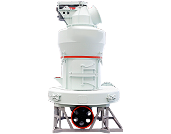If you’re looking to set up a stone crusher manufacturing plant in Bangalore, here’s a comprehensive guide covering key aspects:
1. Legal & Regulatory Requirements
– Obtain Necessary Licenses:
– Pollution Control Board (KSPCB) Consent
– Factory License
– GST Registration
– Mining Lease/Permit (if sourcing raw material directly)
– Environmental Clearance: Mandatory for large-scale operations (MOEFCC norms apply).
2. Location Selection
– Preferred Areas Near Bangalore:
– Tumkur, Ramanagara, Chikkaballapur (due to stone availability & lower land costs).
– Ensure proximity to raw materials (granite, basalt, etc.) and transport routes.
3. Machinery & Equipment
– Primary Crushers: Jaw Crusher, Gyratory Crusher
– Secondary Crushers: Cone Crusher, Impact Crusher
– Screening & Conveying: Vibrating Screens, Belt Conveyors
– Power Supply: Diesel generators or grid electricity (~100–300 HP required).
 4. Raw Material Sourcing
4. Raw Material Sourcing
– Granite quarries (Hoskote, Kanakapura), Basalt (Ramanagara), or River Sand/Gravel suppliers.
5. Investment & Cost Breakdown
| Component | Estimated Cost (INR) |
|———–|———————-|
| Land Lease/Purchase | ₹50L–₹2Cr |
| Machinery | ₹50L–₹1.5Cr |
| Setup & Installation | ₹20L–₹50L |
| Licenses & Compliance | ₹5L–₹15L |
| Working Capital | ₹30L–₹1Cr |
Total Initial Investment: ~₹2Cr–₹5Cr
6. Market Demand in Bangalore
– High demand from:
– Real estate projects (housing, commercial)
– Road construction (NHAI contractors)
– Infrastructure development (metro expansion)
 7. Key Challenges
7. Key Challenges
– Strict pollution norms (dust control via water sprinklers/silos).
– Competition from established players (Propel Industries, Puzzolana).
8. Profitability
– ROI: Typically 3–5 years.
– Margins: ~20–30% depending on scale and efficiency.
Would you like help connecting with machinery suppliers or compliance consultants in Bangalore?
